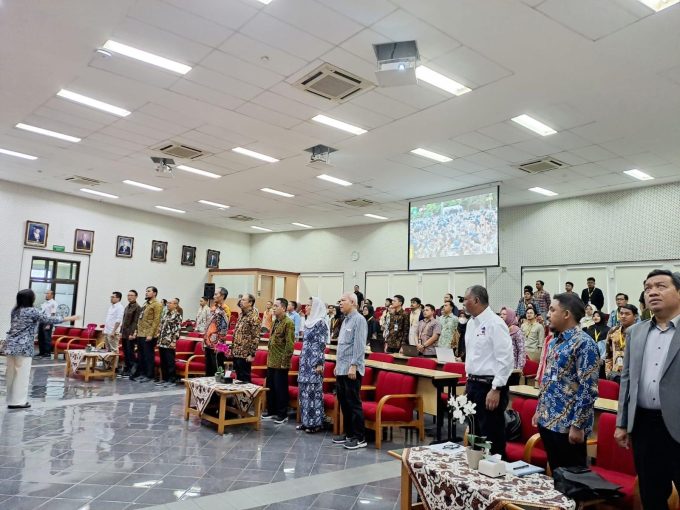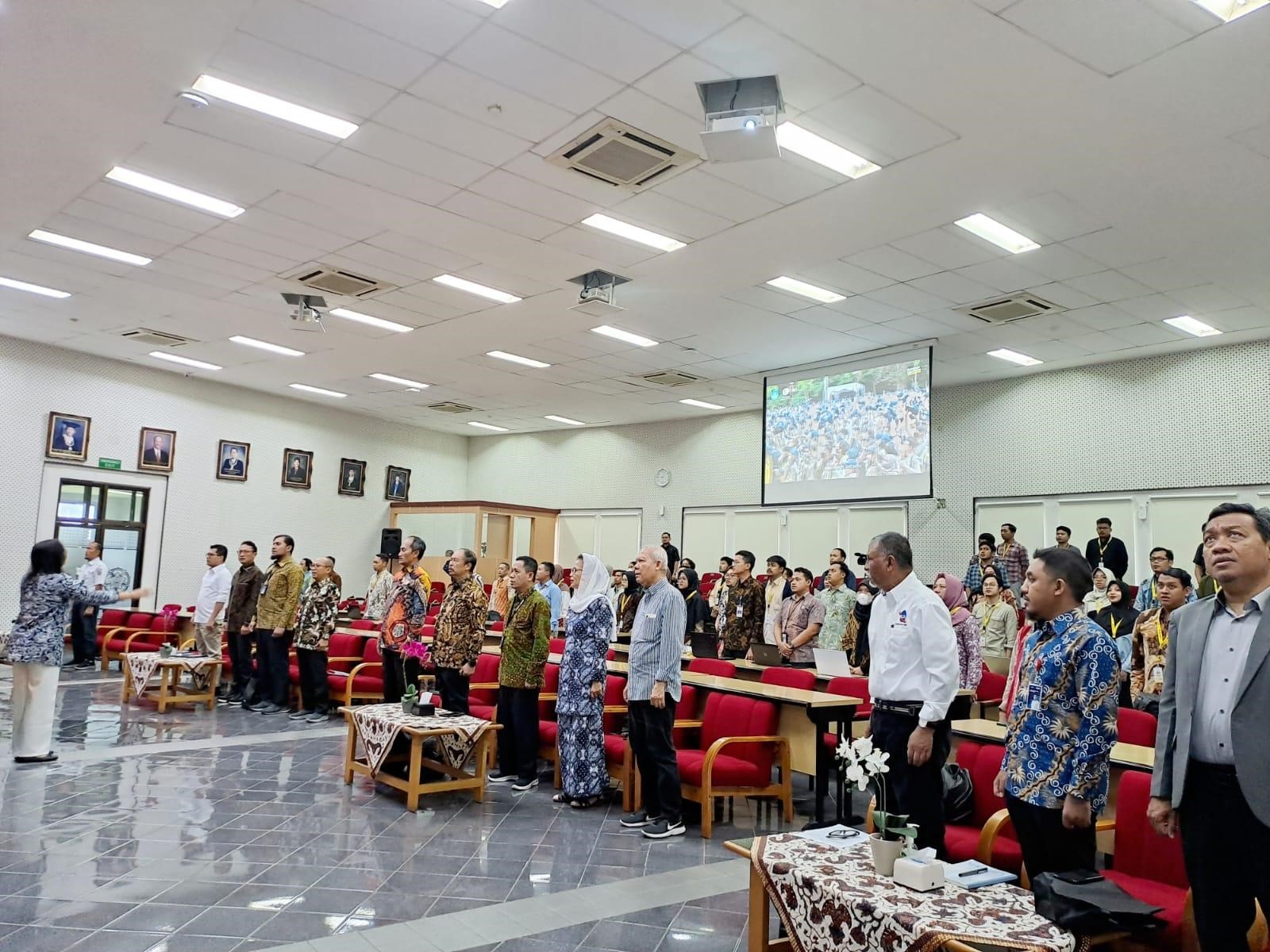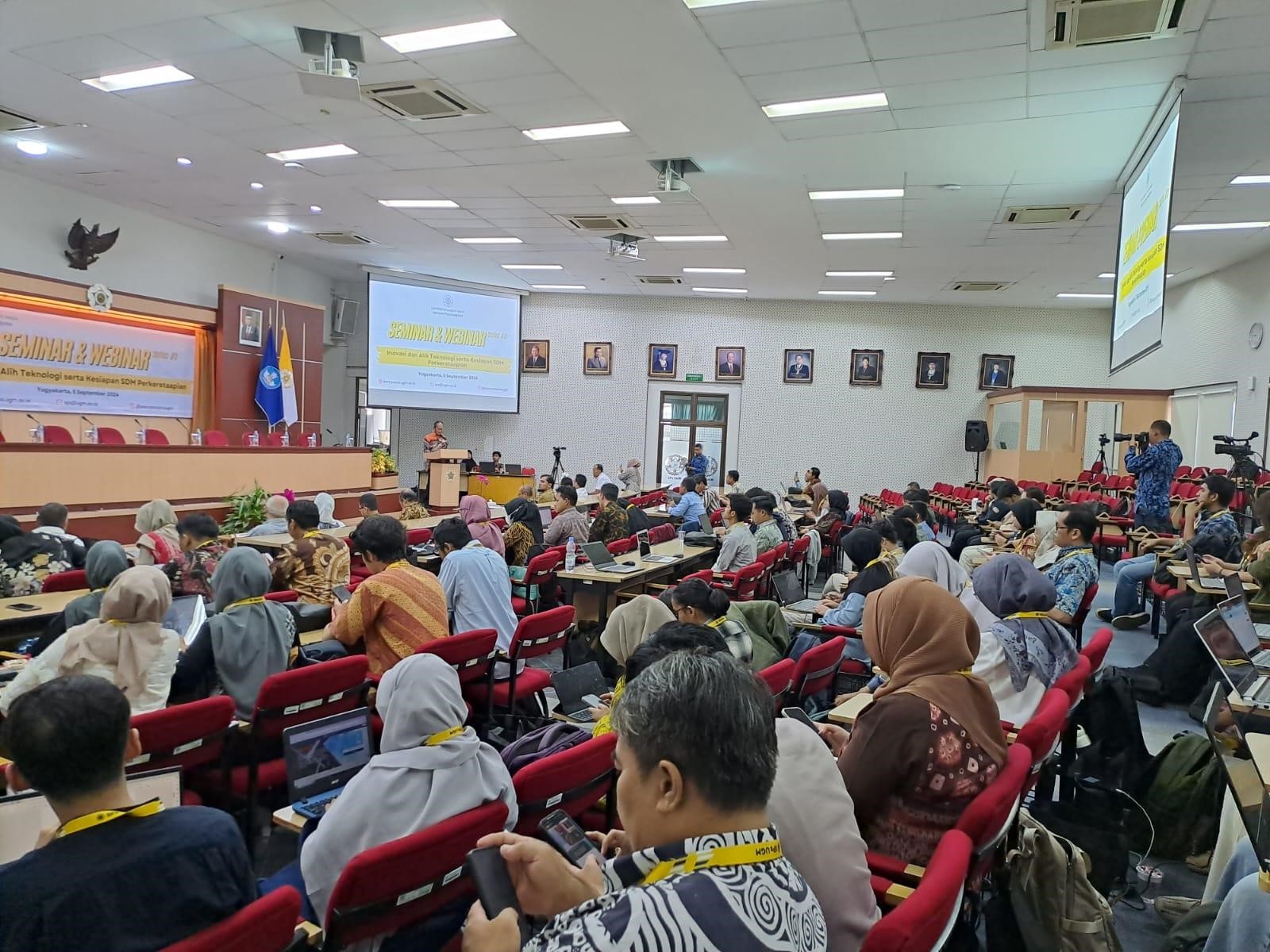
Yogyakarta (5/9), Gadjah Mada University Postgraduate School (SPs UGM) and the Directorate General of Railways (DJKA) of the Ministry of Transportation of the Republic of Indonesia held an Expert Talk Series Seminar #3 in the Socialization and Evaluation session of the 2015-2024 Railway Transportation Sketor Achievements which entitled “Innovation and Technology Transfer and Readiness of Railway Human Resources”. This activity was carried out in a hybrid manner in the Auditorium Room, Unit 1 SPs UGM Building.
Inviting competent speakers including representatives from the Director General of Railways, PT Adhi Karya, PT INKA, PT Len Industri, and also attended by the General Chairman of Maska, Hermanto Dwiatmoko. Participants who attended also came from various backgrounds, namely students, academics and practitioners.
One of the interesting things conveyed from this seminar was the presentation from Mr. Santoso Sinaga, Acting Director of Railway Facilities at DJKA, who discussed policies for developing Indonesian railway technology. As stated by President of Indonesia, Joko Widodo achieving the 2045 vision is through economic transformation by utilizing human resources, infrastructure, simplifying regulations, reformation and bureaucracy.
“Sustainable public transportation includes economic, social and environmental aspects. “Public transportation services as the backbone of movement for the majority of the population contribute to lower transportation costs for the population and reduce pollution,” said Santoso Sinaga.
The realization of smart cities and sustainable mass public transportation must apply principles including low and economical costs, accessibility for everyone, environmental sustainability, information, social equality, community participation and transparency, as well as health and safety.
The seminar was a success with the response from the discussant, namely Ir. Fauzun, S.T., M.T., Ph.D. who is a UGM academic by criticizing each material presented by the resources. The participants also conveyed the results of their analysis of railway challenges and strategies which are currently crucial for all stakeholders.
Tags : railways, sustainable transportation, technology, innovation, SDG 1: no poverty, SDG 4: quality education, SDG 5: gender equality, SDG 7: clean and affordable energy, SDG 8: decent work and economic growth, SDG 9: industry , innovation and infrastructure, SDG 10: reduced inequality, SDG 11: sustainable cities and human settlements, SDG 15: terrestrial ecosystems, SDG 17: partnerships to achieve the goals
Author: Siti Muyasaroh



